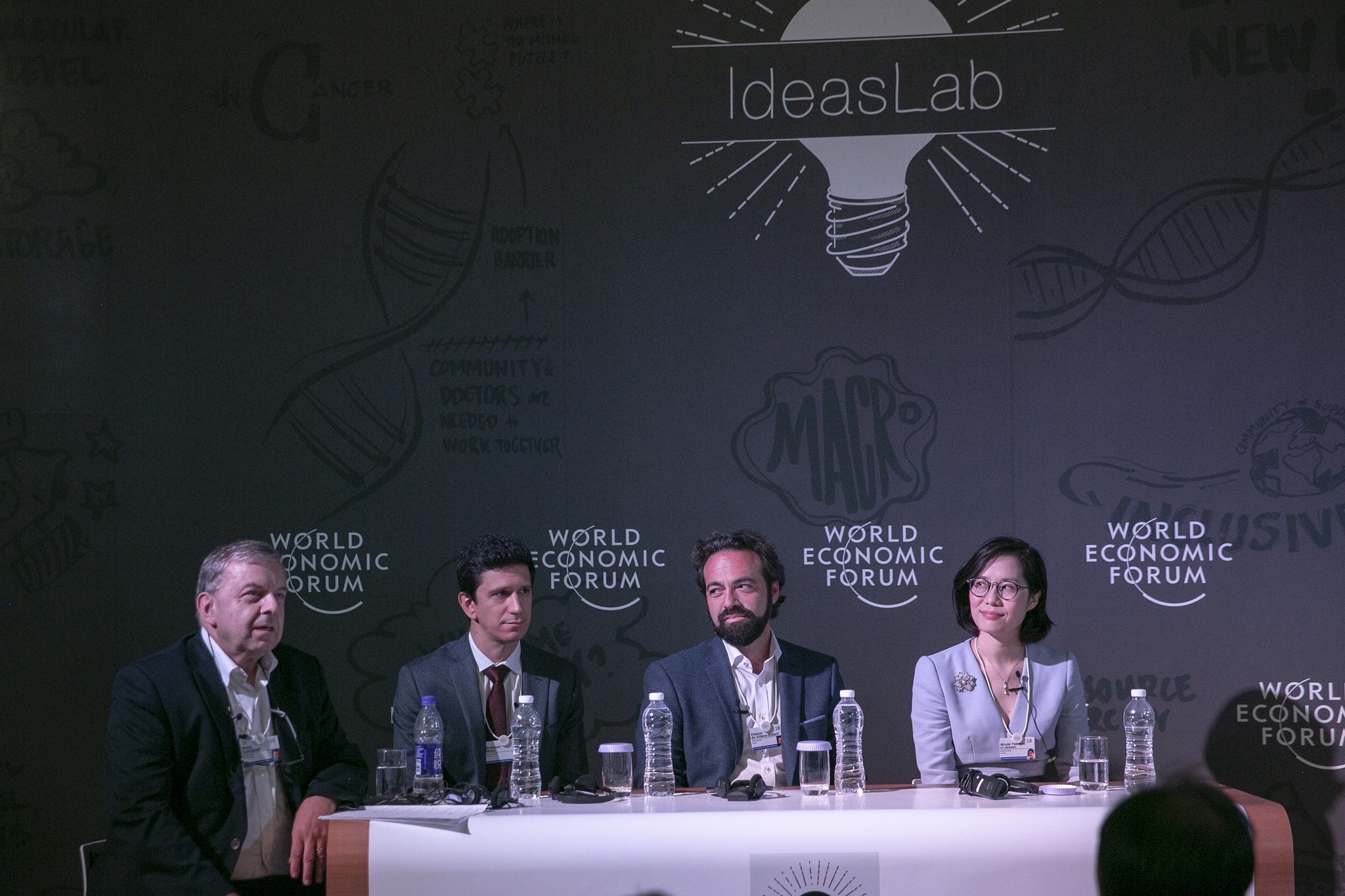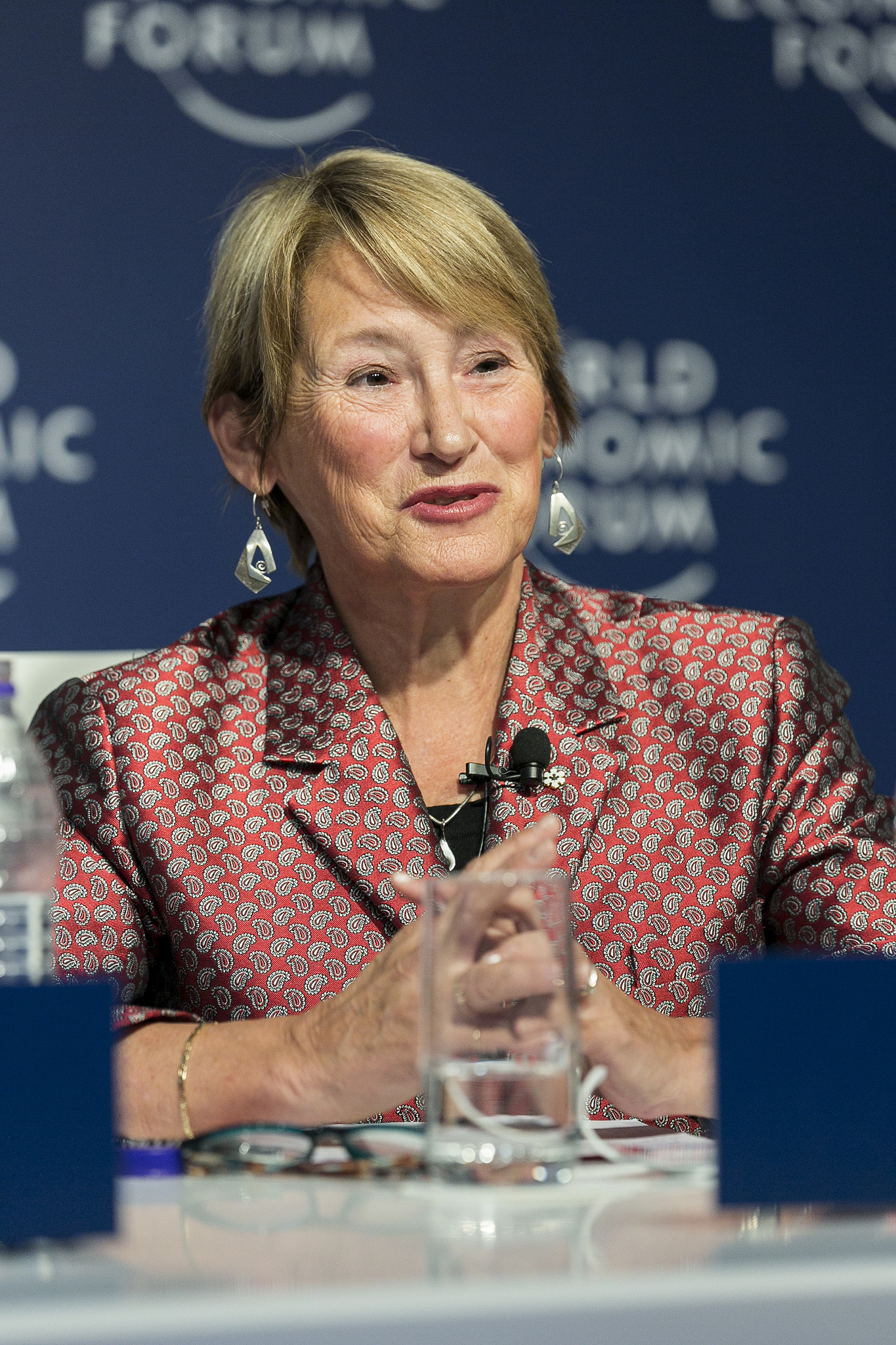
Three McGill researchers presented their work to the World Economic Forum’s (WEF) Annual Meeting of the New Champions (a.k.a. “Summer Davos”) on September 18, in Tianjin, China. It’s the foremost global summit on innovation, science and technology, promoting entrepreneurship in the global public interest.
The World Economic Forum (WEF) has been shaping the future of business and society, bringing together leaders from major multinationals, government, media, academia and civil society, since 2007.

McGill Principal Suzanne Fortier is a co-chair of the WEF Annual Meeting of the New Champions, representing the only Canadian university in attendance. Martha Crago, Vice-Principal (Research and Innovation), is accompanying the Principal.
On September 18, Principal Fortier led an IdeasLab, consisting of five-minute research presentations, by three up-and-coming McGill researchers: Nicole Li-Jessen; Dr. Étienne De Villers-Sidani; and Bratislav Misic.
All work on personalized health as it applies to the brain and to communication, in a quest to improve individual health.
The presentations and introduction by Principal Fortier will go up on the Annual Meeting of the New Champions web site, and on YouTube on September 19.
McGill presenters included:
Nicole Li-Jessen (School of Communication Sciences & Disorders)
Nicole Li-Jessen points out that 80 per cent of those who are generally considered professional or occupational voice users develop voice issues, mostly due to phonotrauma. About 30 per cent of the general population is also affected by disordered voice at some point. (The best known example of a singer who had successful surgery, followed by a course of voice therapy, to correct phonotrauma, is Adele. The best known example of a failed surgical treatment is Julie Andrews.)
“Phonotrauma is usually treated using voice therapy, or surgery,” says Prof. Li-Jessen, a Canada Research Chair in Personalized Medicine of Voice Disorders. “The Voice Research Laboratory at McGill focuses on advancing personalized medicine in voice care through the development of high-performance computing, wearable devices, non-invasive diagnostics and biomaterials for tissue regeneration. In particular, my team integrates in vitro, in vivo and in silico (computational) approaches to study vocal fold biology and wound healing. The ultimate goal is to guide surgeons and speech pathologists in the best methods to repair voices that have been lost.”
Dr. Étienne De Villers-Sidani (The Montreal Neurological Institute and Hospital)
Étienne De Villers-Sidani is studying the mechanisms that underlie brain plasticity in the context of aging and disease, to find better ways to promote brain health.
“I have been working on improving communication for those who cannot adequately communicate because of neurological diseases such as amyotrophic lateral sclerosis (ALS), or Lou Gehrig’s Disease,” says Dr. De Villers-Sidani. “Eye movements remain largely intact in most neurological and medical conditions, thus making communication with these individuals possible. We are working on developing an app that works with any mobile device (tablet, smartphone) equipped with a camera. Using our eye-tracking technology, patients can control a cursor on their device using only their eye movements, allowing them to rapidly communicate with others by selecting pre-defined sentences and words on the screen. Science in the service of the public is a way for us to give back to improve quality of life for patients.”
Bratislav Misic (The Montreal Neurological Institute and Hospital)
Bratislav Misic is analyzing the brain’s network to predict the individual progression of neurodegenerative diseases such as Parkinson’s, in order to create a “virtual patient.”
“At the Network Neuroscience Lab we investigate how cognitive operations and complex behaviour emerge from the connections and interactions among brain areas,” says Misic. “The goal is to quantify the effects of disease on brain structure and function. Our research program emphasizes representations and models that embody the topological organization of the brain, and capture the complex multi-scale relationships linking brain networks to dynamic biological processes, such as neural signalling and disease spread. We are working at the intersection of network science, dynamic systems, and multivariate statistics. We are focussing on complex data sets, using multiple forms of neuroimaging, such as Magnetic Resonance Imaging (MRI), and Electroencephalogram (EEG).”
In addition to the her participation in the IdeasLab, Principal Fortier will be introducing a closed session entitled Educating the Global Middle Class on Wednesday, September 19.
Later that day Principal Fortier will be on a panel entitled Educating Innovative Societies, which will be live streamed on the WEF web site.
On the last day of Summer Davos, Wednesday, September 19, Principal Fortier will co-chair, along with Carlos Moedas, (Commissioner for Research, Science and Innovation, European Commission), a closed panel called Shaping the Future of Science, with the WEF’s Young Scientist Community.
On that same day Martha Crago, Vice-Principal of Research and Innovation, will participate in a panel entitled From University Discovery to Big Business.
The 2018 WEF forum’s Young Scientists class of 2018 include Jill Baumgartner and Tomislav Friščić of McGill. Also attending this year’s meeting are Class of 2017 young scientists, Marta Cerruti and Kyle Ellott.
Over 2,000 participants from 111 countries are gathered in Tianjin, People’s Republic of China, to address global challenges relating to the Fourth (or Digital) Industrial Revolution. The Annual Meeting of the New Champions runs until September 20.
